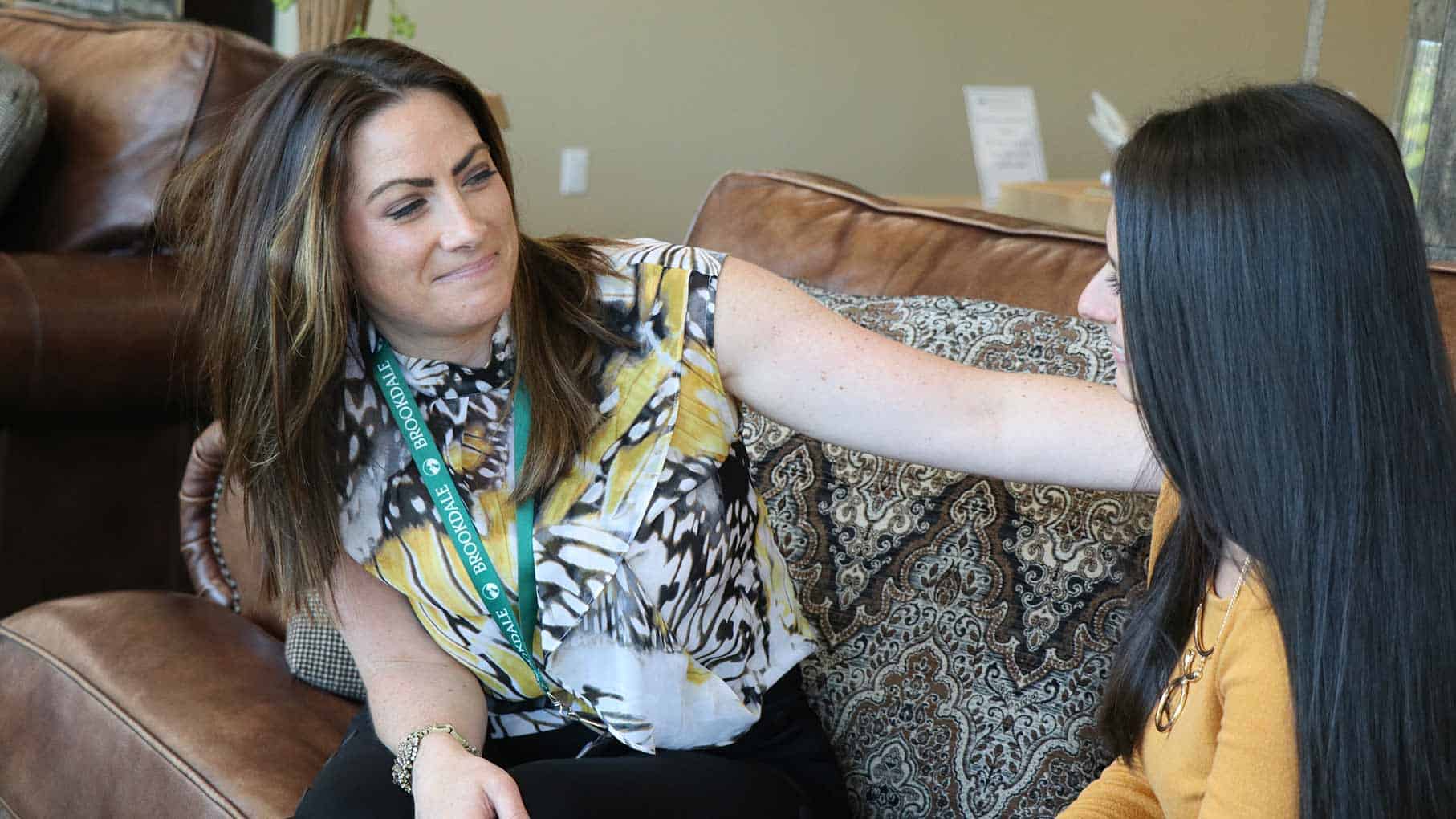Oftentimes, a poorly planned intervention can worsen the situation between your loved one and the family dynamic. Seeking the help of a licensed professional will simply provide the best opportunity for a positive outcome.
When a professional is consulted to act as an intermediary, they will organize the most effective approach for the entire family. The interventionist will consider your loved one’s specific needs and circumstances, as addiction is multifaceted and affects each person differently. After careful assessment, the interventionist can then determine the best course of action including suggestions regarding the most proper treatment programming best suited for your loved one.
At Brookdale, we understand that while many people may need treatment for substance use disorder, they may not be able to recognize or acknowledge that they have a problem. If this is the case for someone you love, you are probably feeling hopeless, helpless and afraid for their well-being… but there is hope! With the help of our highly trained professionals and licensed interventionists, we can provide your family the necessary resources to start the conversation about addiction treatment.
Brookdale works with several of the most experienced and successful interventionists in the northeast. If you are interested in staging an intervention for a loved one, Brookdale’s team of experts are prepared to help, offering you guidance and support throughout the entire process. Our interventionists have several decades of experience helping families find recovery and we will gladly provide you recommendations. Through compassion, empathy, dignity and respect we will work closely with your loved one’s friends and family to create a safe environment, ensuring they feel loved, understood and supported.
When an intervention is performed properly with the help of a professional, your loved one will be much more likely to accept help, increasing their potential for a Life…Recovered.
Your loved one is never alone in their journey to well-being with Brookdale. Once they complete treatment, they’ll have unlimited free access to
Discovery365™, a unique AI-powered 16-point interactive assessment and check-in program. With this revolutionary safety net, we use breakthrough, proprietary technology to intervene when your loved one needs additional support during the most crucial time in recovery within the first year.


